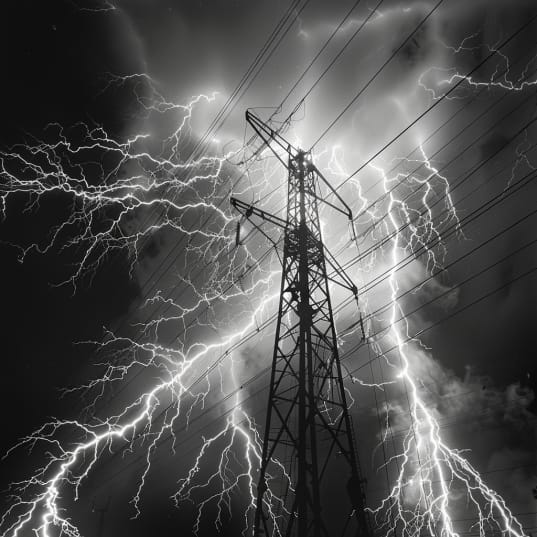- AI Trailblazers
- Posts
- Navigating AI: This Week's Business Highlights #10
Navigating AI: This Week's Business Highlights #10

Welcome to the AI Trailblazers Newsletter. If you come across any compelling AI stories related to these companies that are worth sharing with the community, please feel free to send them our way.
AI Trailblazers will host an exclusive AI focused summit during New York Tech Week. The program will include a blend of keynotes, panel discussions, and networking sessions for guests who are leading the charge in the application of AI in the business world and want to learn more about the possibilities and the pitfalls.

Business leaders speaking at the upcoming AI Trailblazers Summit
View the Agenda
Time: 2:00pm - 7:00pm EST
When: Thursday, June 6th, 2024
Where: Neuehouse, Madison Square, New York, NY
Corporate Leaders: Request an invite
Other Guests: Purchase a ticket
Generational Differences to Gen AI.

The advent of generative artificial intelligence (AI) has sparked widespread interest and speculation about its potential applications, particularly in journalism and news media. But what about the average person? Reuters delves into insights gathered from online surveys conducted across six countries—Argentina, Denmark, France, Japan, the UK, and the USA—to illuminate the public's awareness, usage patterns, and opinions regarding generative AI in news dissemination.
Public Awareness and Use of Generative AI: ChatGPT garners widespread recognition and usage across surveyed countries, with approximately 50% of the online population being aware of it. However, daily usage remains relatively low, ranging from 1% to 7%, primarily concentrated among younger demographics. Despite its recognition, only a small fraction of respondents (5%) have utilized generative AI for accessing news content.
Public Opinion on Generative AI's Impact: Expectations regarding generative AI's impact vary significantly across different sectors, with concerns particularly evident regarding its responsible usage in social media and politics. Views on its effects on life and society are mixed, with younger and more educated individuals expressing greater optimism. Varying levels of optimism and pessimism across countries reflect differing societal contexts and perceptions of AI's potential.
Generative AI in Journalism and News Media: Many believe that journalists already employ generative AI for tasks such as editing and headline writing, though trust in human-produced news remains higher. There's a noticeable discomfort with news primarily produced by AI, especially concerning hard news topics like politics. The majority of respondents advocate for transparency and disclosure regarding AI-generated content to address concerns about authenticity and trust in news media.
Future Perspectives and Public Opinion Evolution: Uncertainty prevails among respondents, with many expressing neutral opinions or a lack of knowledge. Younger respondents tend to exhibit more optimism about generative AI, while current users generally offer positive assessments. Public opinion is expected to evolve with increased exposure and experience with generative AI, potentially becoming more cautiously optimistic or grounded in reality.
AI Trailblazer Takeaways: Still in its infancy, AI has generally high awareness but low adoption among the general populace. While this is predictable and in line with most new tech, the generational differences and issues of trust suggest that we are also in the early stages of the AI debate. Time will tell on AI’s ultimate place in our everyday life, but we’ll be hearing a lot more about AI in the future.
AI Growth Sparks Data Center Electricity Surge

As AI proliferates, data centers face a burgeoning challenge: a surge in energy demands. Recent projections by the Electric Power Research Institute (EPRI) illuminate a significant uptick in data center electricity consumption, driven not only by AI but also by other contributing factors. With data centers projected to consume up to 9.1% of U.S. electricity by 2030, the implications of this growth on energy sources and carbon emissions becomes imperative.
Surging Data Center Demand: New projections indicate a significant surge in energy needs for data centers, driven by the integration of artificial intelligence alongside other factors. The Electric Power Research Institute (EPRI) estimates that data centers could consume between 4.6% to 9.1% of U.S. electricity by 2030, up from 4% in the previous year. This growth is highly regional, with certain states like Virginia and North Dakota projected to bear a substantial portion of the electricity share.
AI's Impact on Energy Consumption: EPRI highlights the substantial energy requirements of AI applications, estimating that AI queries could consume 10 times more electricity than traditional Google queries. The emergence of AI-driven video, image, and audio applications presents unprecedented energy demands. Tech companies like Google and Microsoft are engaging in zero-carbon energy purchase deals to mitigate the environmental impact of AI-related energy consumption.
Energy Source Dynamics: The balance of energy sources used to meet the growing demands of data centers will significantly influence future carbon dioxide emissions. While tech companies are increasingly investing in zero-carbon energy, a TD Cowen report suggests that natural gas will support the majority of incremental data center load growth in the near to medium-term. EPRI emphasizes the need for a multipronged strategy, including efficiency gains and exploring sustainable approaches such as backup generators powered by "clean fuels."
Future Outlook and Collaboration: EPRI collaborates with the data center industry and utilities to explore sustainable approaches to address the surging energy needs. One proposed idea involves backup generators powered by "clean fuels" to foster a shared energy economy, where data centers contribute to grid reliability and flexibility. The report underscores the importance of ongoing collaboration and innovation to navigate the complex energy dynamics associated with the rapid growth of data centers.
AI Trailblazer Takeaways: With great power comes, well, more power! AI proliferation is resetting the limits of not only our tech, requiring high powered chipsets, but also on the electricity needed to run this hardware. Electricity production will be one of many ancillary industries that will be impacted by AI as we harness the power and advantages of the new tech.
The Evolution of Celeb Erotica

As AI capabilities expand, so do the avenues for fan fantasies, raising questions about consent and ethical boundaries. This article by Mashable delves into the emergence of celebrity-voiced erotica, exploring the impact of audio platforms like Quinn and Dipsea on fan engagement and sexual expression.
Celebrity-centric Audio Erotica: With the rise of audio erotica apps like Dipsea and Quinn, celebrities are narrating erotic stories, offering fans a new way to indulge their fantasies. From Luke Cook in group sex scenarios to Victoria Pedretti as a sapphic detective, actors are portraying diverse characters, adding a layer of excitement for listeners.
Changing Online Dynamics: The phenomenon of being "horny on main" is reshaping online interactions, with users expressing their desires more openly through innuendos and thirst tweets. As AI deepfakes complicate the depiction of real people, questions arise regarding the boundaries of celeb fantasies and consent in the digital age.
Quinn Originals and Celebrity Collaboration: Quinn Originals capitalize on existing thirst fandoms, offering a platform where fans can explore their desires through celebrity-narrated stories. The app aims to destigmatize conversations around sexuality by leveraging celebrity culture and storytelling, providing a less taboo outlet for users.
Tech, Celebrities, and Consent: The emergence of deepfake technology and AI presents challenges for maintaining celebrities' rights to their likeness and voice. Collaborations with platforms like Quinn allow celebrities to exert control over their sexual narrative while emphasizing themes of consent and empowerment in erotica.
AI Trailblazer Takeaways: The erotica industry has always been on the forefront of new tech and AI is no different. nuff said.
What is AI Trailblazers?
AI Trailblazers is a vibrant platform dedicated to uniting marketers, technologists, entrepreneurs, and venture capitalists at the forefront of artificial intelligence (AI). Join us for our AI Trailblazers Summit in New York on June 6th. Secure your seat to avoid missing this exclusive opportunity to engage in insightful discussions about the future of AI in business and to network with fellow AI trailblazers.
We launched at CES in partnership with The New York Times and hosted our members for an evening of AI programming at SXSW.

Photographs from the AI Trailblazers evening at SXSW
This platform is designed to fuel growth, innovation, and career development among its members, who all want to be at the forefront of incorporating artificial intelligence into their businesses and their lives for strategic advantage. More information here.
Quote of the Week
“Artificial intelligence would be the ultimate version of Google. The ultimate search engine that would understand everything on the web. It would understand exactly what you wanted, and it would give you the right thing. We’re nowhere near doing that now. However, we can get incrementally closer to that, and that is basically what we work on.”
– Larry Page
Magnificent 7 Links
Elon Musk’s $6 billion xAI fundraise shows he’s serious he is (Yahoo! Finance)
Apples Plan to Protect Privacy with AI: Putting Data in a Black Box (The Information)
OpenAI CEO Cements Control as He Secures Apple Deal (The Information)
Can Elon Musk’s xAI take on OpenAI? (The Economist)
Other Links of the Week
Bessemer to Invest in AI Startup Perplexity at $3 Billion Valuation (The Information)